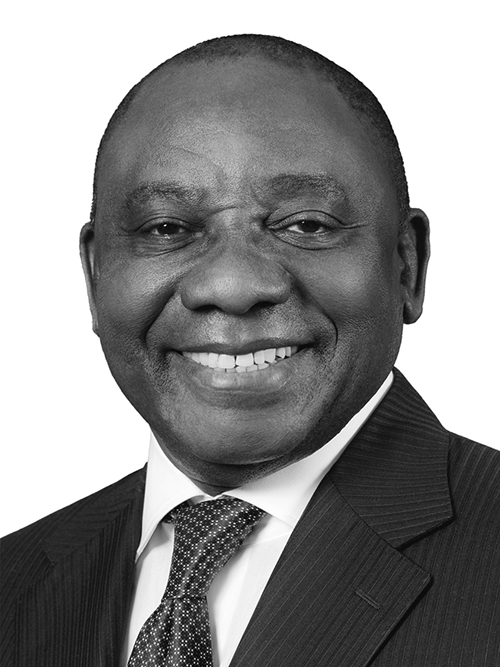Programme Director,
Minister of Women, Youth and Persons with Disabilities, Ms. Sindiswa
Chikunga,
Ministers and Deputy Ministers,
Executive Mayor of the City of Cape Town, Cllr. Geordin Hill-Lewis,
Chief Executive Officer of the National Youth Development Agency, Mr.
Ndumiso Kubheka,
Executive Chairperson of the NYDA, Dr. Sunshine Myende,
Panellists and delegates,
Young South Africans,
Guests,
Ladies and Gentlemen,
Good afternoon, and thank you for the warm welcome to this annual youth dialogue on the eve of the State of the Nation address, which is always a highlight for the President.
The President is unable to attend this year due to pressing issues as he is preparing for the State of the Nation Address. I however want to assure that immediately after this session I will be joining him to look at the final touch up on his speech and ensure that the issues that will be emerging from this gathering form part of his address to the nation.
This is primarily the President believes that young people, are our nation’s beating pulse, our present and our future.
The are not passive observers of the national mood - you set its tone and pace, you surface new ideas, and you turn what matters to you into conversations, debates and movements.
It is from you, the youth, that we come to appreciate what this country sounds like, what its many currents, and the lived experiences of our people are.
For anyone seeking to read the pulse of South Africa, one need only be in gatherings such as this one, so it is a real privilege to be here on behalf of the President. It is for this reason why the President in his absence asked that I come and engage, listen, and to learn from you, because you are the future. Together we want to resolve issues on the economy, on education, on healthcare as well as on climate change and any other issue that you consider necessary.
This is a year of particular significance for us as a nation, as we mark 50 years since the Soweto uprising. In 1976 the youth took to the streets, demanding that their voices be heard and refusing to accept a future that would exclude and marginalise them.
As today’s generation of young people, you are infused with the same moral clarity and sense of purpose.
Your instincts for success, for dignity and for taking up opportunity are hard-wired. They are “locked-in”, to use your Gen Z phrase.
A future in which democracy truly delivers for all is the struggle of your time and your generational mission. In striving to fulfil your goals, you are the worthy inheritors of the mantle of the 1976 generation.
Allow me to thank the National Youth Development Agency for convening this dialogue.
For the past 17 years the NYDA has been at the forefront of our efforts as government to connect young people to livelihoods, skills training and economic opportunities. The NYDA has facilitated a range of interventions to support youth entrepreneurship and also lent its support to the Presidential Youth Employment Intervention, the National Youth Service and others.
On behalf of President Ramaphosa, I look forward to hearing more from the young South Africans on today’s panel who are the beneficiaries of the NYDA’s work.
As has been the case in the past, the valuable insights gleaned from this engagement have enriched the State of the Nation address and given us valuable food for thought.
I keep my words brief because I would like this to be a real exchange of views.
I am here with Ministers, Deputy Ministers, Mayor of Cape Town, Councillors, Officials from all spheres of government not only to share with you what we as government are doing but to plan with you the future of our country.
Thank you once more for welcoming me and I look forward to our discussion today.









